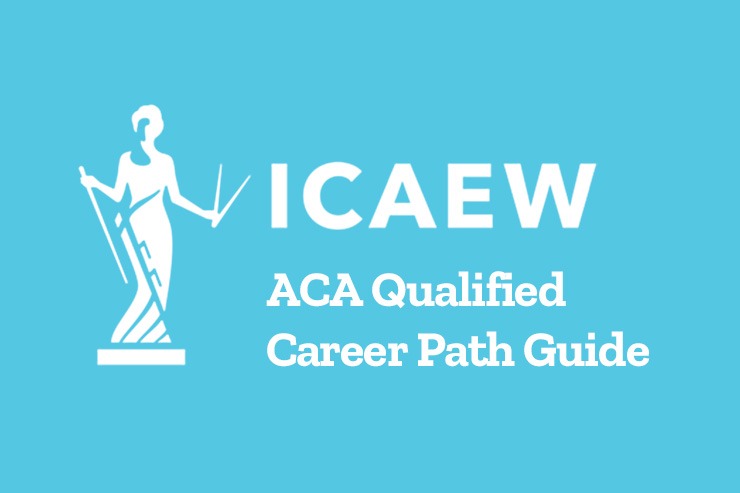- Accessibility
- Request a Call Back
- Quick Drop CV
- Submit Timesheet
- About Us
- For Candidates
- For Clients
- News & Views
- Events

Are you a pro at coming up with slogans? Have you got a passion for statistics, research and creative writing? Or perhaps you just want to put your mad men box set to good use.
Whatever the reason, if you’re the person who always gets asked to contribute to communications, effortlessly handles presentations and is always jotting down ideas for the next great TV ad, you might find a career in marketing a rewarding and exciting prospect. Not sure where to start? Here’s some top roles to whet your appetite and our top tips on how to improve your chances to securing them.
What they do: Supporting the marketing manager, you’ll be at the heart of driving marketing campaigns for the department. An important cog in the marketing wheel, you'll be expected to be involved at all levels, including drafting press releases, updating clients and organising promotional events.
What you need: Competition to start a career in marketing is fierce and applicants with a degree in marketing, business or commerce will have an advantage over other applicants but this isn’t necessarily the case all the time.
Earning potential: At an entry level position you can look to earn anything up from £17k but once you get some experience this can rise to anything between £18K - £25K.
Perfect for: People who like to be behind the scenes.
View all marketing assistant roles >
What they do: Working with the media to portray a positive reputation through communication, building good relationships and creating understanding between an organisation and its public.
What you need: To be successful in PR and communications, the ability to build relationships with people is essential. It’s not all air kisses and muahs daahhling. It’s a real understanding of influencing opinion and behaviour to protect reputation.
Earning potential: A £16,000 - £24,000 starting salary but as with anything, it depends on the type of company you work for.
Perfect for: People with good communication skills, powers of persuasion and can spin a good yarn.
View all PR and communication roles >
What they do: Digital marketing roles have a special focus on all things “online”, typically complimenting the offline marketing of the business and digitally transferring it via website, social media and search facilities.
What you need: Have a strong interest in digital trends, creativity, excellent copy writing skills and the ability to throw around technical terminology is essential. There are no specific qualifications that are a requirement for this role but any qualifications that demonstrate a strong familiarity with the internet and web design is a bonus.
Earning potential: Can vary greatly depending on the size and profitability of the company. While it is often in line with the salary of offline marketers (typical salaries ranging between £25,000 and £40,000) but with specialised skills in related fields like e-commerce, digital marketers can end up earning more than their offline counterparts.
Perfect for: People who are the first to download that new app everyone’s talking about and then review it to the enth degree.
View all digital marketing roles >
What they do: Plan, implement, control, analyse and report on information that you gather. The data you collect will normally revolve around what organisations or people buy, need, do or think and the reasons why.
What you need: An analytical mind and strong knowledge of statistics. An interest in psychology and behavioural science helps too.
Earning potential: Starting on £15,000 to £20,000 a year which, with experience, would rise to around £28,000.
Perfect for: People who like collecting and interpreting data.
View all marketing research roles >
1. Set your Goals
The first step is the most difficult. Visualise the job you want. If the end goal is a stretch too far at this point, break it down into realistic and achievable steps.
2. Know your capabilities
It’s time to look in the mirror and get to grips with your own strengths and weaknesses. Be brutally honest, know where you are in relation to your goal, but don’t let this put you off. You’re on a journey and that journey may take you onto some ‘B’ roads before you hit the motorway.
3. Get a Personal Development Plan
Craft a Personal Development Plan and decide what actions you need to take to reach your goals. Be specific, make your actions measurable and write a date in which you are going to hit the milestones and stick to them!
4. Take advantage of the many opportunities for in-house training that working in the charity sector offers. Talk to your line-manager about doing external courses or gain additional experience by shadowing others. If you’re working with suppliers they often offer free events to join that will add to your knowledge base. Take advantage of any free learning that is going on offer.
5. Talk to someone who is where you want to be
Find someone doing what you want to do. Now that you have a role model ask yourself what is it about them that has made them successful. Maybe sit and have a coffee with them and talk about their career journey. Find out their secrets-of-success. You will find that people are often more than happy to talk about themselves and offer this key information quite freely.
6. Connect with others
Build connections with people who can help you. Join communities and professional networks – these may be specific functional groups or skill-specific associations. Build a LinkedIn profile. Be relevant to their conversations and be prepared to hold your own opinions. It’s important to share your passion but stay on piste and develop an antenna to tamper down when necessary.
7. Be prepared for change
Change is constant – get on board or get left behind. Keep your eyes-open to new deployments in your sector and do not be afraid to offer your services and get stuck in to any new project.
8. Brush-up on your knowledge
Keep abreast of your profession, read sector related magazines and journals attend events and talk to people in commerce to get a fresh and up-to-date perspective.
9. Adopt a commercial mind-set
Providing value-for-money in the charity sector is not good enough. The whole sector wants to see a measurable cost benefit and accountability for service delivery. Demonstrate that you can not only achieve targets but know how you can make these relevant to your publics.
10. Finally...
Passion and ambition is infectious. Your drive and energy will elevate you to stand out in the crowd. Be generous with your ideas and treat others how you wish to be treated yourself.
The Morgan Hunt marketing and comms team has extensive experience in connecting great candidates with exciting vacancies in the charities, not-for-profit, education and arts and heritage organisations. Contact us or call the team on 0207 419 8900 to find out more.
Congrats. You’re CIMA qualified! Now what?
Sit back and watch the offers roll in? No. Step it up a gear to differentiate yourself from other newly qualified's (NQs) because you’re not alone. This is the time to think about your future and getting ahead of the competition.
Choose your career path now
CIMA prepares you for a career in business. As a newly qualified CIMA, typically your career path will follow either:
Utilising your analytical, planning (FP&A) and strategic skills, cross-function communication and providing key support to drive business performance.
Utilising the technical elements of your studies and practical experience to develop into a finance manager, financial controller and ultimately finance director.
Decide your route first. How? What is your experience to date and do you need to expand your skill set?
Experience checklist
Do I stay or do I go?
Do you stay with your existing employer or take this opportunity to move? Ask yourself:
So, what’s out there?
If you decide to move, it’s important to know what’s out there. Do you see yourself developing in the finance sector within a corporate company or an SME? In the current climate, as a newly qualified CIMA these are your routes to market:
Corporate
The corporate tends to offer marginally higher salaries and more comprehensive benefit packages.
Commercial finance & strategy
Typical roles: Commercial Analyst | Business Analyst | Financial Analyst
Operate cross-functionally with other key stakeholders teams and departments.
Provide the link between finance and operations.
Financial management
Typical roles: Finance Manager | Financial Controller
These positions are the more traditional management accounting roles.
This path is about career development through position and provides excellent direction up to Finance Director.
SME
Remuneration and benefits tend to be a marginally lower compared to the corporate companies.
Commercial finance and strategy
The larger SMEs offer commercial business partner roles but to a lesser extent than a corporate. The advantage of the SME is the potential for more varied and broader based roles that provide more in-depth experience that will add strong value to your new qualification and CV.
Financial management
The opportunity to secure a finance manager or financial controller role is greater in an SME.
Contrary to public opinion, the public sector and charity sector still offers excellent opportunities for the newly qualified CIMA. It is in fact the revamp and commercialisation of these sectors that has generated the demand to attract newly qualified CIMA talent. The analytical and financial business partner positions are there for the taking whether you have qualified from a commercial business or with existing skills in these areas.
Salary expectations
Read our salary guide to see what you're worth.
This guide provides market insight into how salary levels vary across different sectors and which sectors offer the most opportunities for newly qualified CIMA candidates.
How do I stand out from the NQ masses?
First impressions count. Get your ducks in a row. Consistency across all the mediums through which you portray your skills is key. And yes, this includes your online brand. Pay as much attention to building your online brand as you do to writing your CV.
Here are some highlights:
Think you’re done? What about the interview preparation. Your skills get you through the door but it’s down to you to sell yourself.
You’re in demand. You have the tools. It’s down to you to utilise them in the right way to develop your career. At Morgan Hunt, we can help you navigate your journey to success. Get in touch – call Rob Anderson on 0207 419 8909 or email rob.anderson@morganhunt.com.


Many congratulations. Your hard-work has been rewarded. You’re ACA qualified! What’s next?
Now’s the time to think about your future and getting ahead of the curve.
The skills that you have gained through your training will be highly sought after by some of the global market-leaders in:
You know your skill-set is desirable. Now it's time to make yourself marketable so you can turn every opportunity into a career prospect.
As a newly qualified ACA you can follow a number of routes depending on your training and specialist practical experience, including:
Salary levels will vary by sector and the type of experience you have, whether you want to move into a corporate or SME. Corporate finance experience does have a premium.
Read our salary guide for average salary rates by sector and market insight into which sectors offer the most opportunity for career progression.
With many options open to you it can be difficult to decide on the next best step for your career path. Ask yourself:
Ensuring your CV is up to date, effectively demonstrates your skills and experience and is tailored to the role and industry for which you are applying is key.
Then, once your skills get you through the door make sure you’re thoroughly prepared for that all important interview.
Speak to someone who knows the market. At Morgan Hunt, we understand what clients look for in newly qualified candidates, and have helped hundreds of candidates at your level with their career.
We offer you unbiased advice on what the current market conditions are across your sectors of interest, as well as provide some insight into the day-to-day roles you may be interested in pursuing.
Your skills are in demand – now is the time to make the most of them and further develop your career. Get in touch today – call Rob Anderson on 0207 419 8909 or email rob.anderson@morganhunt.com.
Louise Parkes, Director of Fundraising at the British Heart Foundation, was recently appointed as a new Trustee to the Dame Kelly Holmes Legacy Trust, joining the board to take on the exciting challenge.
Working with Morgan Hunt recruitment agency, Louise secured her role as Trustee in September 2012. With Louise now nine months into her trusteeship, she talks about her motivations for pursuing the role and what advice she would give others looking to become a Trustee for a high profile charity.
The Dame Kelly Holmes Legacy Trust enables disadvantaged young people to get their lives on track and benefit from the skills, expertise and experience of world class athletes through a range of personal development programmes. The charity, founded in 2008 by Dame Kelly Holmes, has helped more than 50,000 young people to lead more positive lives.
The DKH Legacy Trust has recently been awarded £6.9million in funding from Sport England to support the roll out of the charity’s successful Get on Track initiative nationwide over the next four years.
With the charity moving forward with ambitious plans for growth and a new strategic direction, a new Trustee was required to play an integral part in realising the DKH Legacy Trust’s long-term growth and development goals. As a national supporter and proud partner of the DKH Legacy Trust, Morgan Hunt was approached to recruit for this exciting position.
How did you hear about the Trustee post at DKHLT?
"Morgan Hunt was involved in the recruitment for a senior role at the British Heart Foundation and Ben Pountney approached me directly with the Trustee role at the Dame Kelly Holmes Legacy Trust."
What influenced your decision to apply for the post?
"Having previously been a Trustee of a small charity, I was looking for a trusteeship for a cause I was passionate about, where I felt I could make a valued contribution."
With DKHLT being one of the fastest growing charities in the UK it must be an exciting time to be on the board. How does the charity plan to build on this success and continue to grow and develop in the future?
"It is a very exciting time to be involved with the Trust. Part of my role is to provide support and guidance on fundraising. Managing rapid growth and ensuring it is sustainable can be challenging, but the Trust is ensuring that it diversifies its income generation activities to provide a stable base moving forward."
How does your role as a Trustee differ from your role as Director of Fundraising at the British Heart Foundation? What are your typical responsibilities as a Trustee?
"The role is quite different, but there are some similarities. As a Trustee I have responsibility for governance and strategy, but I am also able to provide support, guidance and expertise in fundraising."
What's the most rewarding aspect of your role?
"The most rewarding aspect of the role is seeing and hearing the difference that we make to the lives of young people. Some of the stories are quite inspirational."
How do you feel your skills and experience complement those of your fellow board members?
"It is a fantastic board of Trustees, with each bringing different skills and experience to the table. Some of the Trustees have been involved in the Trust since it started, and have managed and guided the organisation through phenomenal growth. Understanding where an organisation has come from is a really important part of supporting its development in the future."
What qualities and attributes do you think are essential for anyone looking to get on the board of Trustees for a high profile charity such as DKHLT and what advice would you give for those wanting to pursue a Trustee post?
"Different organisations will be looking for different skills and attributes, depending upon the type of charity and the current constitution of the board. It can be incredibly rewarding, but it is also a significant commitment. Make sure it is a cause you are passionate about and can fully meet the expectations of the role and the organisation. I would recommend to anyone who cares about making a difference and has skills to offer to pursue a Trustee post."


The number of people working in the public sector is the lowest it’s been for the last 15 years, or at least the lowest within a comparable series.
Labour market latest estimates show overall employment continuing to rise with unemployment falling. The switch between sectors has never been greater in recent times.
If you have spent most of your career within either the private or public sector, the prospect of moving between sectors and adapting to a different culture and environment may be a daunting one.
Generally speaking since private sector organisations are driven by profit, they tend to be more fast moving, while the public sector is more cost and results driven with a higher emphasis on budget control, targets and productivity, albeit the current government’s pledge to simplify some of the targets.
There are however a lot of similarities between the two sectors, with some areas of the public sector wanting and needing to be more commercial. Providing you do your research there are many transferable skills you can draw on if you are looking to make the switch.
It is important to spend time outlining exactly what you are looking for in your next position. Identify not only the type of role and responsibilities that you want to focus on going forward but also the type of organisation with which you want to engage. If you know what you want from your next job and the type of organization you want to work for, that hurdle seems manageable and even appealing.
So, what’s next?
It’s always advisable to tailor your CV to each individual job application you make, and this is particularly the case when looking to make the transition between the public and private sectors.
Avoid using any language or terminology which is indicative of the opposite sector you want to move into as this will suggest to the employer that you are less able to adapt to your new environment. Analyse the job descriptions and person specifications to gain an idea of the sort of language used, comparing like-for-like jobs in both sectors to understand the differences.
If you have a particular position or company in mind you should do as much research into these as possible. However if you are moving from public to private sector or vice-versa it is important that you also look into the change of environment and culture more generally. There are strong cultures that influence both sectors in different ways, bridging this is more tricky than you might imagine. Get a job plan together here.
As well as helping to tailor your CV effectively this will also give you a better understanding of the direction in which you want your career to progress.
Neglect social media at your peril. Make sure you are managing your social profile and actively use it as a tool to build your online brand. There’s no denying social media is here to stay and it is important that you familiarise yourself with these types of channels. Check out our tips on creating the perfect online ‘brand’.
As well as taking steps to ensure you are prepared specifically for making the switch between sectors it is important that you don't neglect to do the same things you would for any other job search. This includes making sure your CV and covering letters effectively demonstrate your passion and suitability for the role you're applying for, as well as approaching companies speculatively to get on their radar for current and future opportunities.
So if you're looking to move between the public and private sectors, contact us to find out more about how Morgan Hunt can help you make a smooth transition. We work across both sectors and can advise you on the nuances of each.
The construction industry was one of the first to be hit by global recession.
Construction downsizing can have a major and an immediate effect on; employment, government tax collections, and general confidence among the mass population. As private investors pulled back, the public sector put the plug on funding, leaving many employees; blue and white collar, junior and senior, concerned with job loss. Morgan Hunt Director, Dan Taylor, shares his construction market insights.
During a long period of recession a large volume of the workforce left or moved on and those entering the workplace didn’t see construction as a desirable or stable profession. The latest UK Construction PMI shows the construction industry expanding for the eighth consecutive month. With new optimism among clients, construction companies are looking to invest, not just in housing demand but in private sector infrastructure projects and commercial building work.
Construction jobs
An increase in construction output is good, but challenges will arise in sustaining this if the skills required are in short demand. Fewer candidates in the market have the effect of pushing up salaries, making projects more expensive and more variable to price. A strong demand for skills can put the supply chain under pressure and put projects in financial jeopardy should they fail to meet deadlines.
Competition for skills will be fought in the battlegrounds of who is the; ‘best company to work for’ and ‘best at paying suppliers promptly’. A failure to understand these finer points may result in no ‘man’ on site. There is also a need to improve the image of the UK construction industry and its attractiveness to potential employees. All this however has a positive effect for the candidate as they will have more choice, and better pay and conditions.
Jobs in demand
Experienced people are in short supply across nearly every trade and skill level. The industry is reporting a strong need for quantity surveyors, chartered surveyors, estimators, architects, qualified contracts managers and construction engineers. Two very severe and long recessionary periods in as many generations has simply not brought sufficient numbers of these through the building construction colleges and universities which is now taking its toll but will get worst as the industry picks up into full swing over the coming year.
There has never been a better time to become involved in the building and trades field. For those who are seeking long term jobs and reasonable security, the construction industry appears to be a safe bet. People who trained to do construction during the economic crash were able to take advantage of the fact that many had left the industry. These professionals were exposed to big projects at an early age. With the new projects coming in they will be able to take advantage of the demand for senior members of staff.
What is the future for construction professionals?
Generally the future looks bright for construction workers. Now is the time for companies to improve their employer branding to compete in what will become a candidate driven market. With promises of new construction projects and therefore long term employment opportunities, the industry will lure back some of those who left, but this may not fill the void completely. Employers will need to be more flexible, offer better incentives, think about what their future workforce will look like and be prepared to nurture their talent pool to resemble that vision.
The largest construction project in the UK being Crossrail, and looking further ahead there are prospective construction projects that include; the High Speed 2 (HS2) line and Crossrail 2, all of which will consume large quantities of professional skills, trades and labour.
Morgan Hunt offer a consultative service to help your organisation with their employer branding and to compete for the best talent . For more information email info@morganhunt.co.uk
